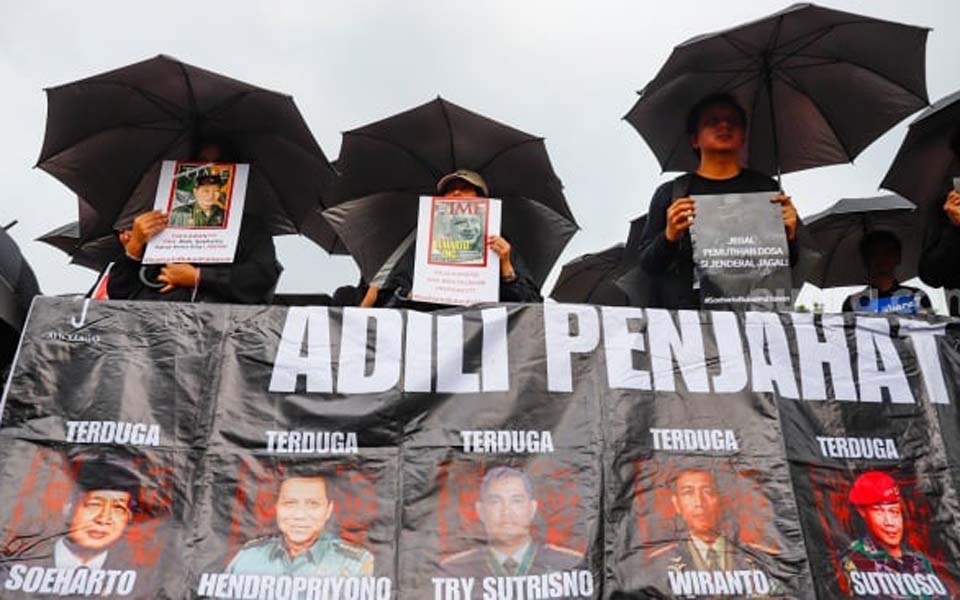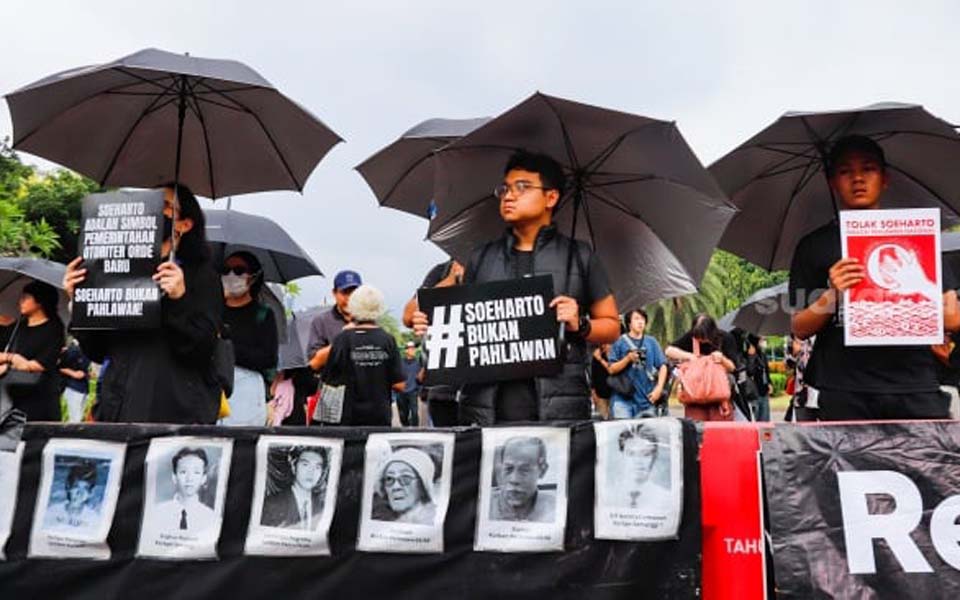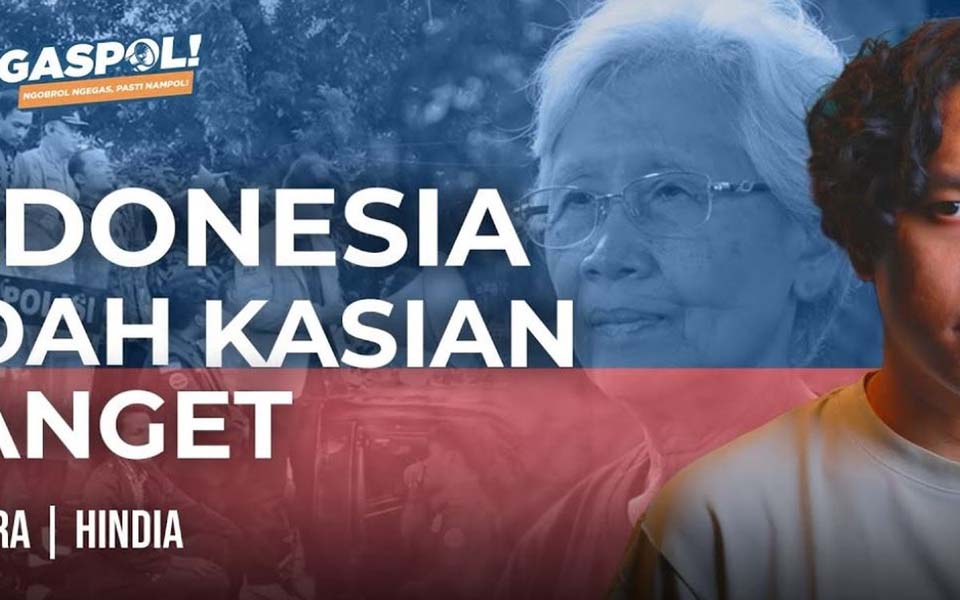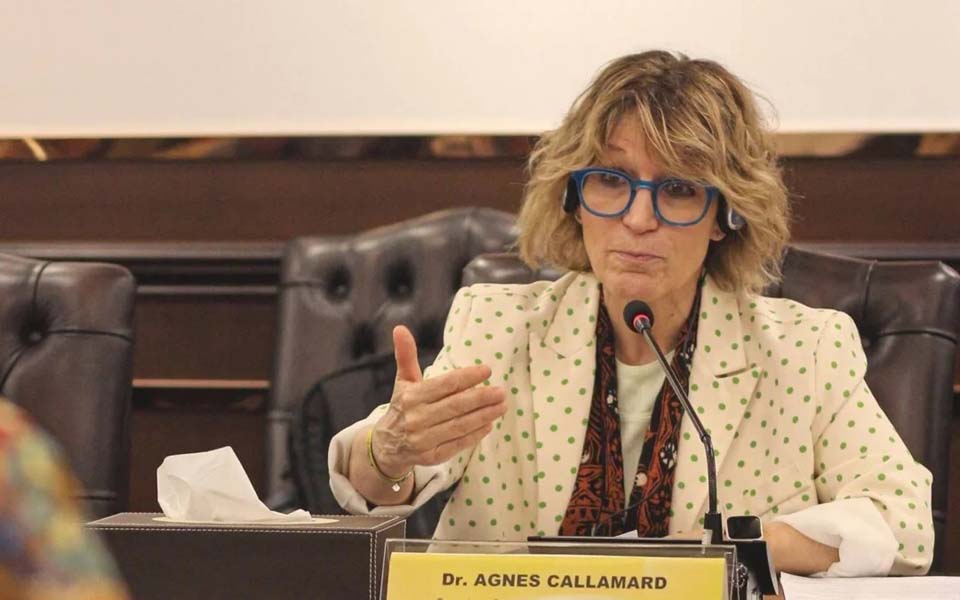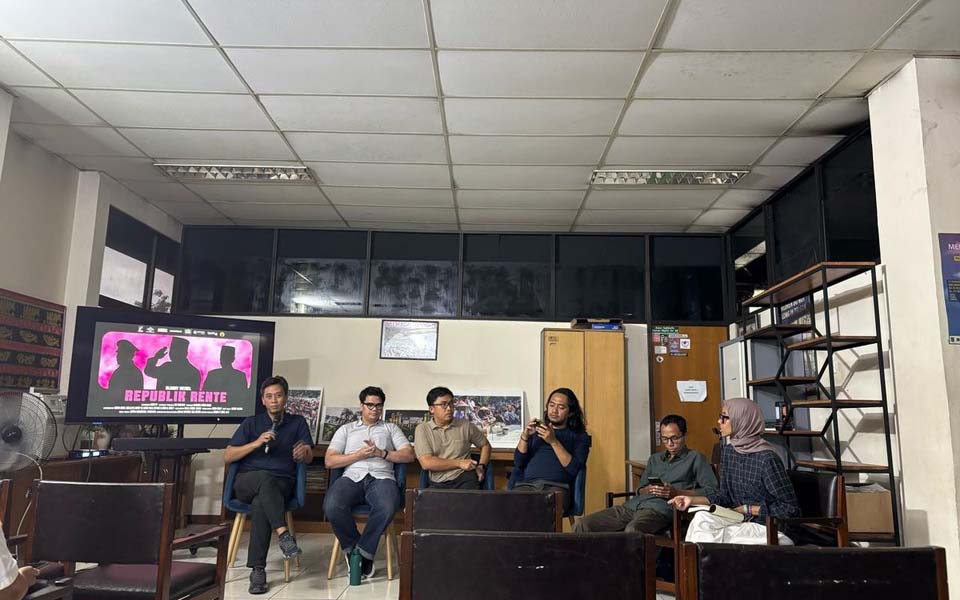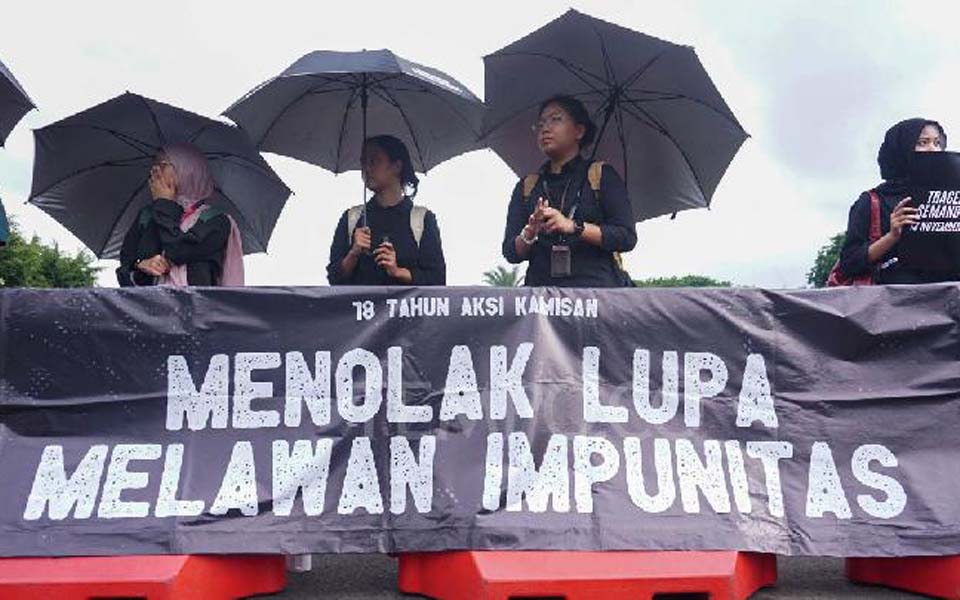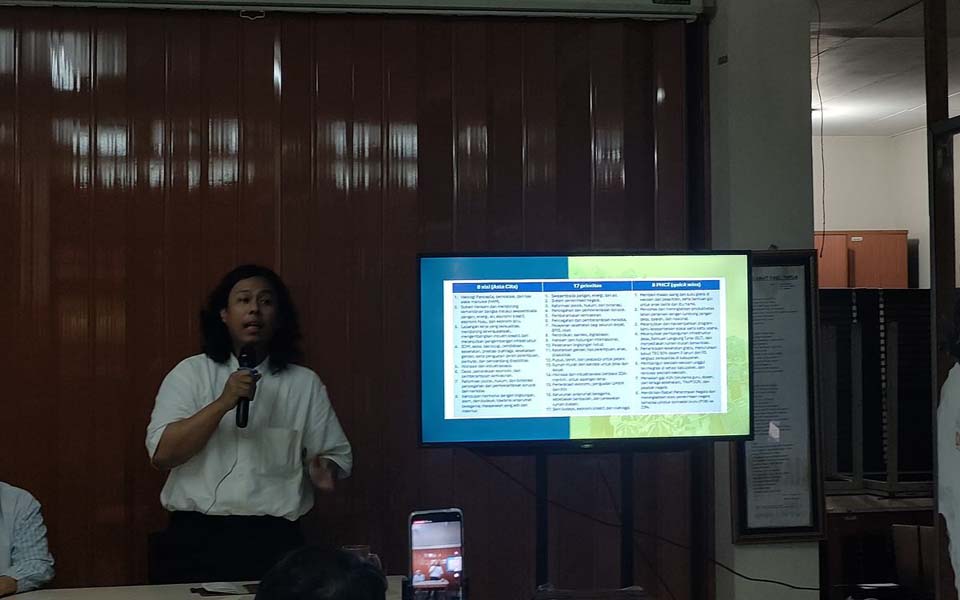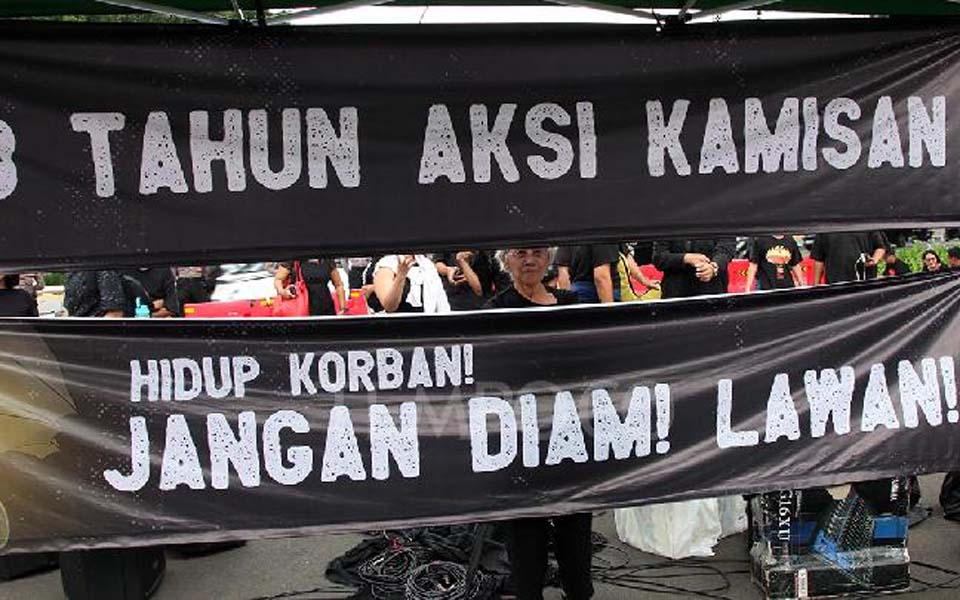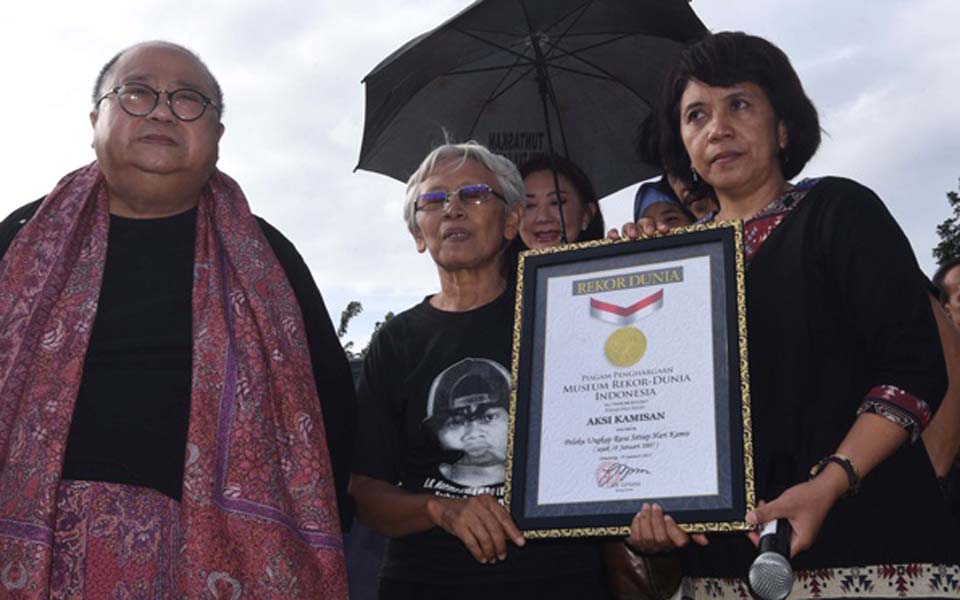Jakarta – The victims and families of victims of human rights violations say the government is reluctant to resolve past human rights cases. Cases such as the 1997-1998 abduction of activists, the shooting of Trisakti students and the Semanggi I and II incidents, which should be investigated, are precisely those that are being ignored and left dependent on finding a legalistic ground to take action.
President Susilo Bambang Yudhoyono is seen as being passive because he is incapable of maximising the performance of cabinet members in resolving human right violations. It is not surprising therefore that the victims and families of victims of human rights violations believe that the president’s statement that there is no one who is above the law is merely something nice to hear.
These concerns were included in an open letter to President Yudhoyono from the Solidarity Network for Victims and Families of Victims (JSKKK) that was handed to the president through a member of the Presidential Security Detail (Paspampres) on the afternoon of Thursday December 6, during a Thursday Action in front of the State Palace in Central Jakarta.
The letter was part of an ongoing campaign by victims and the families of victims to seek justice. “This is our 18th letter”, said Arief, the father of BR Norma Irmawan, who was shot dead by security personnel when the Semanggi I incident erupted on November 13, 1998.
Out of the 18 letters that the group has already sent to the president, only once have they received a response from State Secretary Hatta Rajasa. The reply contained a request that Attorney General accept and accommodate the complains of the victims and families of victims of human rights violations.
Also present during this, the 44th Thursday Action, were four members of the National Human Rights Commission, Ridha Saleh, Yoseph Adi Prasetyo, Saharudin Daming and Syafruddin Ngulma Simeulue. “The government cannot just remain silent,” said Simeulue. (JOS)
[Translated by James Balowski.]






